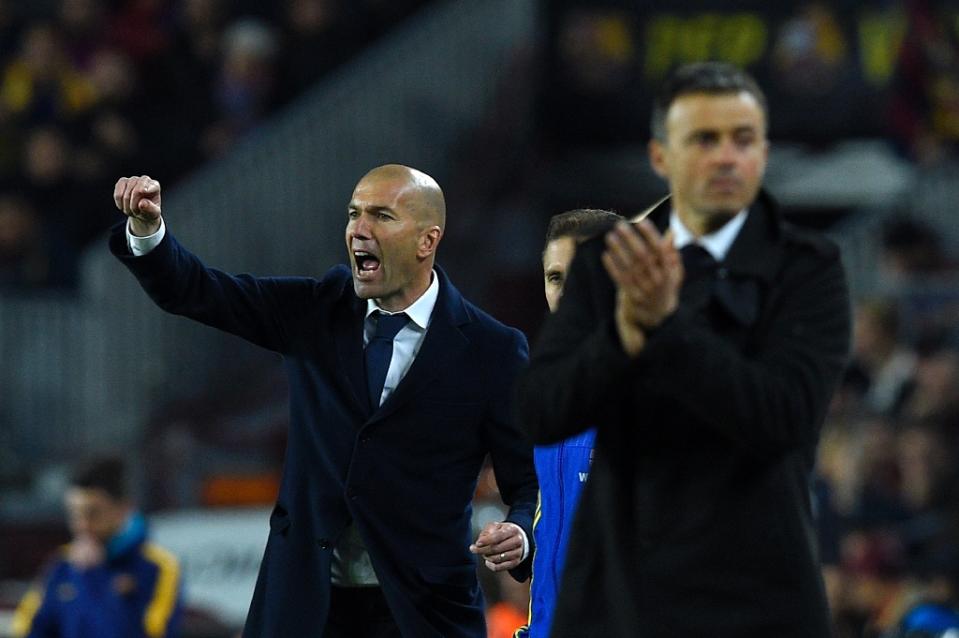Champions League rule changes will only benefit the elite clubs

We’ve written a lot about the growing inequality in the Champions League this week. About how Thursday’s draw underscored the dearth of real contenders. And about the destructive effects of the modern game’s economics on the once-big clubs from the small countries.
On Friday, these issues were only exacerbated by a new set of rules passed by UEFA for its flagship competition. It didn’t garner much attention, but the tweaks to the format – and namely to the teams that qualify – could be colossal.
In a story on its website, UEFA called it an “evolution”, but really, it’s a move designed to prevent exactly that. In a nutshell, the four highest-ranked leagues in the UEFA coefficient will each be guaranteed four places in the Champions League’s main tournament as of 2018. Which is to say that Spain’s La Liga, the German Bundesliga and the English Premier League will be assured of four places in the group stage, none of which will require qualifying, rather than three guaranteed spots and a berth in qualifying like they have right now. The Italian Serie A currently has two guaranteed spots and a third in qualifiers and would also receive four.
That’s assuming nobody displaces those four as the leagues with the highest UEFA coefficient, based on their recent performances in European competition. And it’s unlikely that they would — France, Russia and Portugal currently lag far behind.
But that becomes sort of a self-fulfilling prophecy. By assuring more teams from one country have access to the tournament, that country will, logically speaking, also perform better by virtue of having more teams who can deliver a strong performance.
With half of spots now reserved for just four leagues, that leaves only 16 slots for the other 50 or so leagues in UEFA. This will only worsen Europe’s problem with parity, or lack thereof. The balance already skews so heavily towards those four leagues, and then to the biggest club within them. These new rules will only strengthen their grip on the game’s revenue flows.
Because the coefficient system is also changing, slanting further toward teams’ own accomplishments, rather than the collective record of their nation’s clubs. And historical achievement, like titles won several decades ago, will also count. This all benefits the big clubs.
As does the redistribution of the ample cash the Champions League generates. More of it will be awarded for performance, a club’s individual coefficient – again, ossifying the hierarchy – and less of it for merely being in the tournament. Another win for the big clubs.
What’s more, a new company will be formed that will plot out the future of the competitions, and half of its directors will be appointed by the big clubs themselves – the other half by UEFA. The big clubs will not only get more spots and more money, in other words, but also more control.
“The amendments made will continue to ensure qualification based on sporting merit, and the right of all associations and their clubs to compete in Europe’s elite club competitions,” interim UEFA general secretary Theodore Theodoridis said in a statement. “We are happy that European football remains united behind the concepts of solidarity, fair competition, fair distribution and good governance.”
Those are ludicrous things to say. Because if the “amendments” accomplish anything, it’s the opposite of what Theodoridis is proclaiming.
None of this is entirely UEFA’s fault. The big clubs, from the big leagues, had been pushing for this redistribution of places and money for years, and since they primarily drive the revenue the Champions League generates, the governing body’s hands were tied. The clubs had been threatening to boycott the competition. Or, worse, break away and start their own European league.
So UEFA caved. And in so doing, it made the rich richer and made it that much harder for anybody outside the current competitive elite to challenge it.

 Yahoo Sports
Yahoo Sports 

